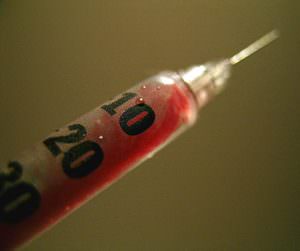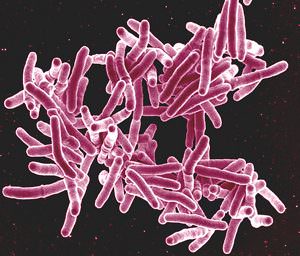Drug-Resistant Bacteria Follow Soldiers Home
The US military's evacuation chain that removes wounded soldiers from combat, while effective at saving lives, has helped give rise to an antibiotic-resistant superbug that has spread to civilian hospitals in the U and Europe.
The U.S. military’s evacuation chain that removes wounded soldiers from combat, while effective at saving lives, has helped give rise to an antibiotic-resistant superbug that has spread to civilian hospitals in the U.S. and Europe.
Your support matters…Wired:
As the bacteria spread through hospitals in the US and Europe, the DOD worked overtime to keep a lid on the rumors. In a PowerPoint presentation about acinetobacter and pneumonia delivered at the US Air Force School of Aerospace Medicine, a slide labeled “How to handle the press” read: “Don’t lie. Don’t obfuscate. Don’t tell them any more than you absolutely have to.”
Quietly, in spring 2004, a group of military doctors, infectious-disease specialists, and microbiologists decided to find out what was really going on with this bug. “My concern was that we were changing the bacterial environment in our hospitals, and I wasn’t seeing a whole lot being done about it,” says Tim Endy, the former communicable-disease research director at Walter Reed. “And now there were infections in patients who had never been to Iraq. The potential consequences to health care and to the cost of health care are huge.”
The bills for imipenem use were soaring at Walter Reed, and each dose of the drug contributed to the snowballing resistance of the bacteria. Endy drafted a paper that became the catalyst for a full-fledged epidemiological consultation (an epicon, in military-speak) under the authority of the Army Surgeon General. Dozens of infectious-disease experts joined the investigation, along with academic researchers and epidemiologists from the CDC.
The task force sent field teams into Iraq and Kuwait to gather soil samples, swipe stretcher handles, and scour chow halls. When a storm dumped sand onto the decks of the Comfort, they swabbed the gunwale. To put the IED theory to the test, they took samples of bacteria from the dirty wounds of soldiers as they were admitted to the Ibn Sina. They also analyzed soil archived by the DOD before the war began.
Independent journalism is under threat and overshadowed by heavily funded mainstream media.
You can help level the playing field. Become a member.
Your tax-deductible contribution keeps us digging beneath the headlines to give you thought-provoking, investigative reporting and analysis that unearths what's really happening- without compromise.
Give today to support our courageous, independent journalists.






You need to be a supporter to comment.
There are currently no responses to this article.
Be the first to respond.